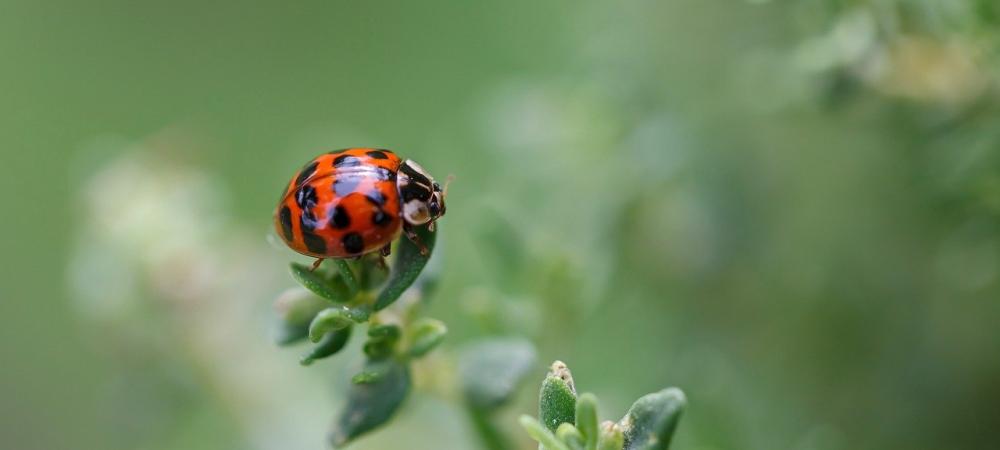Using Beneficial Insects for Lawn Pest Control in Alabama

As a homeowner in Alabama, you know that keeping your lawn healthy can be a challenge, especially with pests like aphids, spider mites, and grubs lurking in the grass. While chemical pesticides have been a traditional go-to solution, many homeowners are now turning to a more natural approach—using beneficial insects. These tiny allies can help control pest populations without the need for harmful chemicals, promoting a healthier ecosystem in your yard.
What Are Beneficial Insects?
Beneficial insects are natural predators or parasitoids that can help keep pest populations in check. They can be found in various habitats across Alabama, from the rolling hills of the Appalachian Mountains to the coastal plains.
Utilizing beneficial insects for outdoor pest control has several advantages:
- Eco-Friendly: They offer a chemical-free solution to pest problems, making them safer for your family, pets, and the environment.
- Sustainable: Beneficial insects can establish themselves in your yard, providing long-term pest management rather than temporary fixes.
- Biodiversity Boost: Encouraging beneficial insects promotes a diverse ecosystem, which can help improve the overall health of your lawn and garden.
By promoting these helpful allies in your yard, you can create a balanced ecosystem that minimizes the need for chemical interventions.
Common Beneficial Insects in Alabama
1. Ladybugs (Ladybird Beetles)
With their distinctive red bodies and black spots, ladybugs are not only cute but incredibly effective at controlling pests. They primarily feed on aphids, mites, scale insects, and other soft-bodied pests that can damage your plants. In fact, a single ladybug can eat over 5,000 of aphids in its lifetime!
How to Attract: Plant flowers such as dill, fennel, marigolds, black-eyed Susans, and milkweed to draw ladybugs to your yard. Avoid using pesticides, as these can deter ladybugs from taking up residence in your garden.
2. Nematodes
Beneficial nematodes are microscopic worms that target soil-dwelling pests like grubs, root weevils, and soil-dwelling insects. The nematodes will enter the bodies of pests and release bacteria that kill them. They are particularly effective against grubs, which can wreak havoc on your lawn's root system.
How to Apply: You can purchase beneficial nematodes at local garden centers or online. They are typically applied to the soil during the evening or on cloudy days to prevent sunlight from harming them. Once applied to the soil, they will seek out and destroy harmful larvae.
3. Predatory Mites
Tiny but mighty, predatory mites are effective hunters of various pest species, including spider mites and thrips, and can help regulate their populations naturally. These mites feed on pests, helping to keep their populations in check. Their presence can significantly reduce the need for chemical interventions.
How to Attract: Maintaining a diverse garden with plants such as dill, fennel, cilantro, marigolds, cosmos, and yarrow can help attract predatory mites. Avoid broad-spectrum pesticides, which can harm these beneficial allies.
4. Lacewings
Lacewings, often referred to as "aphid lions" in their larval stage, have delicate, lace-like wings and are excellent pest controllers. Lacewing larvae are voracious predators of aphids, caterpillars, and other small pests. They can consume hundreds of pests throughout their development, making them a valuable asset in your garden.
How to Attract: Adult lacewings feed on nectar and pollen, so planting plants like goldenrod, yarrow, dill, cosmos, and asters can help draw them to your yard. Additionally, providing a diverse habitat will encourage their presence.
5. Parasitic Wasps
These tiny wasps are often overlooked but are among the most effective natural pest control agents. They are highly effective at controlling pest populations like caterpillars and aphids. Parasitic wasps lay their eggs inside or on the bodies of pest insects, such as caterpillars and aphids. As the larvae develop, they feed on the host, eventually leading to the pest's demise.
How to Attract: To attract parasitic wasps, plant a variety of flowering plants that bloom at different times, ensuring a steady food supply for adult wasps. Avoid using broad-spectrum insecticides that could harm these beneficial creatures. Many local garden centers may also offer beneficial wasps specifically suited for common lawn pests in Alabama.
General Tips for Attracting Beneficial Insects
Creating a welcoming environment for beneficial insects involves a few strategic steps:
- Diverse Planting: Incorporate a variety of plants, including flowers, herbs, and native species. This diversity provides food and habitat for beneficial insects. Alabama native plants like coneflowers and butterfly bushes are great options.
- Avoid Chemical Pesticides: Reducing or eliminating chemical pesticides is crucial. Chemicals can harm beneficial insects along with the targeted pests. Opt for organic gardening practices and natural pest deterrents.
- Provide Shelter: Create a habitat for beneficial insects by leaving areas of your garden wild, with native grasses and flowering plants. Consider adding insect hotels made from natural materials to encourage nesting.
- Water Sources: A shallow water source can attract beneficial insects. Consider adding a small birdbath or shallow dish filled with pebbles and water to provide drinking spots for ladybugs and lacewings.
Using Insects For Natural Lawn Pest Control
Using beneficial insects for lawn pest control is not just an environmentally friendly choice; it's a smart strategy for homeowners in Auburn, Opelika, or throughout eastern Alabama looking to protect their gardens while fostering a healthy ecosystem. By embracing these natural allies and creating an inviting habitat, you’ll not only reduce pest populations but also contribute to the overall biodiversity of your local area.
Start small—plant a few native flowers or introduce some ladybugs into your garden. Over time, you'll see the positive impact of these beneficial insects on your lawn. Enjoy the beauty of your outdoor space, knowing you’re nurturing nature’s balance right in your backyard!
For more information, contact our team at Envirogreen.
